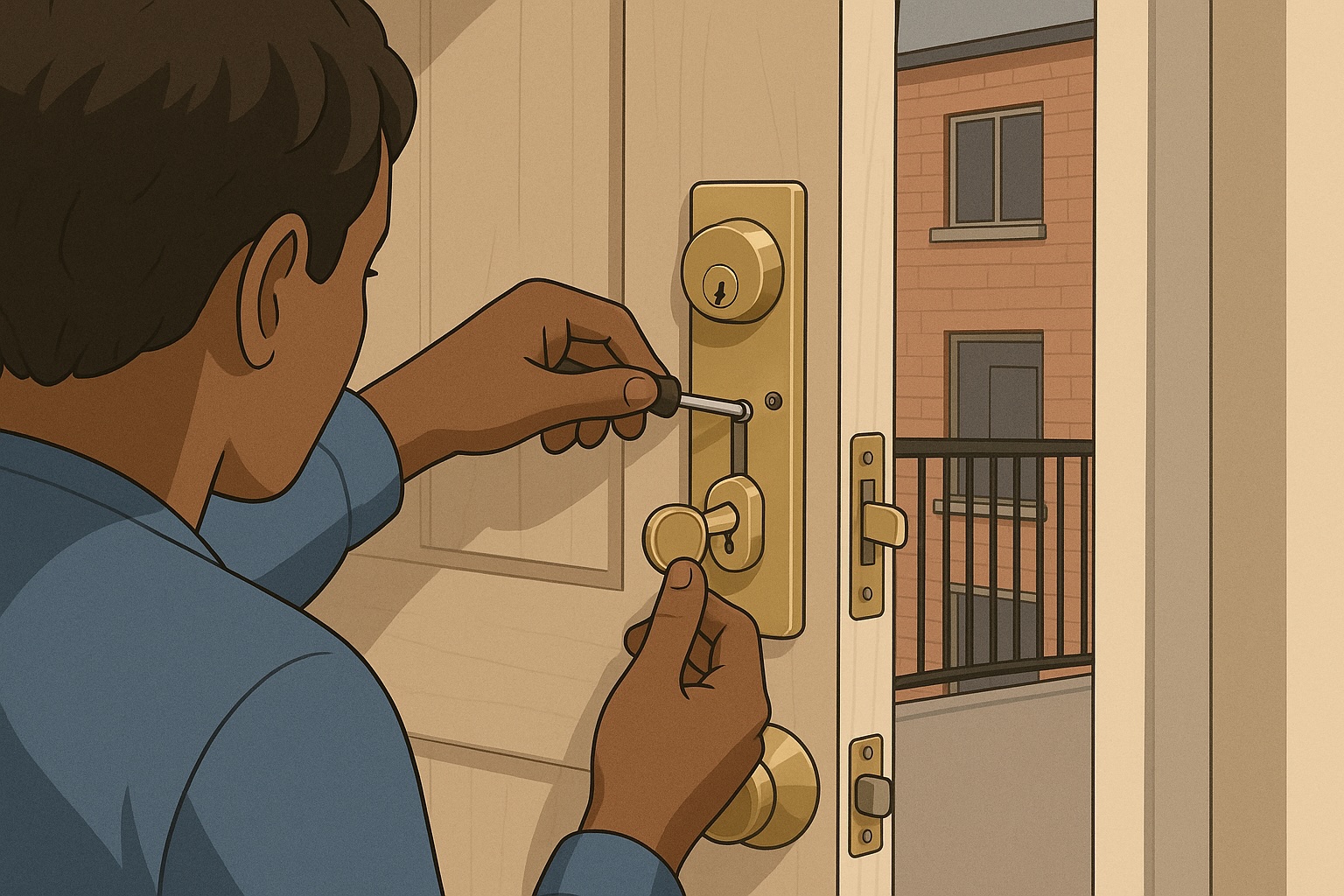Switching Locks Legally in Ontario Rental Units After Abuse
After leaving an abusive partner, feeling safe in your own home is paramount. This guide explains the special provisions in Ontario's Residential Tenancies Act that allow survivors of domestic violence to legally change the locks on their rental unit, even if the abuser is on the lease.

One of the most immediate fears after leaving an abusive partner is, "They still have a key." Your home should be your sanctuary, but it's impossible to feel safe when an abuser could walk in at any moment.
Under normal circumstances, Ontario's Residential Tenancies Act, 2006 (RTA) states that a tenant cannot change the locks on their rental unit without the landlord's permission. However, the law recognizes the extreme danger that survivors of violence face. Special provisions now exist to help you secure your home quickly and legally.
Your Legal Pathway: An Application to the Landlord and Tenant Board (LTB)
The safest and most legally secure way to change your locks is to get an order from the Landlord and Tenant Board (LTB). The RTA allows tenants who have experienced domestic or sexual violence to apply to the LTB for an order authorizing them to change the locks.
This process also allows you to address a major complication: what if your abuser is also on the lease?
Step-by-Step: How to Apply for an Order to Change Your Locks
Step 1: Gather Your Supporting Document
To use these special provisions, you must provide the LTB with one of the following two documents as proof:
- A copy of a court order: This could be a restraining order or a peace bond that is currently in effect and meant to protect you from the abuser. OR
- A "Tenant's Statement About Sexual or Domestic Violence and Abuse": This is a formal statement, signed by you, where you declare that you or a child living with you has experienced violence. You do not need to provide details of the abuse in the statement itself.
Step 2: Fill Out the LTB Application Form
You need to file a Form T2: Application about Tenant Rights. In this application, you will explain your situation and tell the LTB what you want them to order.
Step 3: Specify the Remedies You Need
In the "Remedies" section of the T2 form, you must clearly state what you are asking for. This is where you can solve multiple problems at once. You can ask the LTB for an order that:
- Authorizes you to change the lock on your unit's door.
- Prohibits the landlord from giving a new key to the abusive person.
- Terminates the tenancy of the abusive co-tenant, while allowing you to take over the lease on your own. This is a powerful and critical tool if your abuser is on the lease with you.
What If You Are in Immediate Danger Tonight?
The LTB process takes time. If you believe you are in immediate danger tonight, your safety is the only priority.
Some survivors in this situation choose to change the lock immediately and notify their landlord afterward. Be aware that this is technically a breach of the RTA. Your landlord could try to serve you with an eviction notice for this.
However, if you had to defend your actions at an LTB hearing, you could explain that the unauthorized lock change was a necessary act of self-preservation in the face of an immediate threat. Given the context of domestic violence, it is highly unlikely the LTB would evict a survivor for taking emergency steps to secure their own safety. This is a risk, but it may be a necessary one. It is highly recommended to seek legal advice immediately if you take this step.
Where to Get Legal Help in Toronto
Navigating the LTB can be complex. Getting advice from a legal professional who understands both housing law and domestic violence is the best way to protect your rights.
- Federation of Metro Tenants' Associations (FMTA) Tenant Hotline: Call them at 416-921-9494 for free advice on your rights as a tenant.
- Your Local Community Legal Clinic: These clinics offer free legal services, including housing law advice, for low-income residents.
- Barbra Schlifer Commemorative Clinic: They are experts on the intersection of violence against women and the legal system, including housing issues.
You have the right to be safe in your own home. Ontario's laws are designed to help you secure that right. Use the resources available to you, and take the steps you need to turn your home back into a sanctuary.
